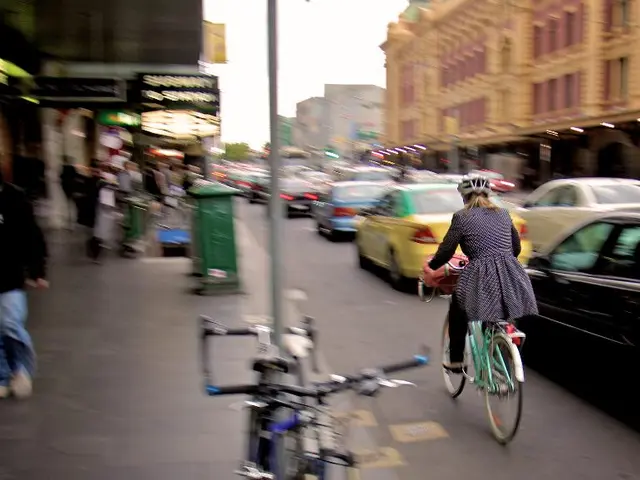Decreased Rate of Student Absences in Southwestern Regions
Hittin' the Books: Risks on the Way to Class Drop, Yet Concerns Remain:
Let's chat about the rollercoaster ride we call the school commute in Baden-Württemberg, shall we? Here's a lowdown on the situation, complete with a dash of info from the fancy folks over at the European Transport Safety Council.
Last year saw a notable dip in the number of traffic accidents on the school run, according to the friendly neighborhood cops. Back in 2023, they were dealing with 423 tussles on the road, but that number plummeted to 374 in 2024 – a 12% reduction that left them scratching their heads in delight. That's significantly less than the numbers we saw in the pre-Corona days, as per the folks at the Ministry of the Interior.
The casualty count included 35 children and youngsters with serious injuries and 339 who walked away with just scrapes. Tragically, one pupil lost their life in the southwest in 2024, with a similar fatality reported in the year prior.
Accidents involving children, altogether, are experiencing a steady decline. The total count dropped from a whopping 1,805 in 2024 to 1,739. A whopping 2,516 children ended up hurt in traffic accidents the same year.
Checkin' Time
The boys in blue recently focused on safeguarding our pint-sized road users with a special crackdown. They wrapped up 29,700 vehicles for a good ol' checking and found almost 5,000 baddies breaking the rules.
"More than 47% were putting the pedal to the metal," grumbled Interior Minister Thomas Strobl (CDU). "Speeding near schools and kindergartens can have dire consequences. Everyone needs to buckle up, drive slow, and be kind while navigating these zones," he warned.
The cops' extra efforts resulted in another eye-opener: children in vehicles weren't buckled up properly a staggering 430 times. Child seats were missing or poorly fixed, creating a potentially dangerous situation.
Ever wondered why it's so dang important to follow the road rules? Let's dive into some European trends. European children falling victim to road collisions totaled over 6,000 between 2011 and 2020. Death rates vary widely across countries, with some countries experiencing higher rates than others[1].
The experts recommend reducing speed limits and implementing safe cycling and walking routes, especially in urban areas with high foot and bike traffic[1], [3]. They've also goofed around in cities like Bologna, setting wide-ranging 30 km/h speed limits to boost road safety[3].
As for Baden-Württemberg, they can definitely learn a thing or two from these recommendations, starting with lowering speed limits and creating safe cycling and walking routes. Keeping European Transport Safety Council's recommendations for safe urban spaces in mind could help improve road conditions for our pint-sized travelers[2].
But there's always a catch, ain't there? New EU driving license rules might tempt younger drivers to go faster, increasing the risk for accidents involving child pedestrians and cyclists[5]. To avoid such calamities, Baden-Württemberg may need to bring out the big guns in the form of additional safety measures.
- The decline in school-run traffic accidents in Baden-Württemberg, as reported by the European Transport Safety Council, includes a reduction in incidents related to car accidents, a category falling under the umbrella of 'general-news' and 'accidents'.
- An emphasis on health-and-wellness was evident in the police's recent crackdown on speeding near schools and kindergartens, aiming to prevent accidents that could potentially harm children, a category of concern that aligns with health-and-wellness.
- While the number of traffic accidents involving children in Baden-Württemberg is decreasing, as seen in the 2024 statistics, the importance of adhering to road rules, a key aspect of 'science', cannot be overstated, as it directly affects the safety of children and contributes to reducing overall accidents, as evidenced by the European Transport Safety Council's recommendations.








